Brain
The brain is the control center of the body. It is a complex organ that coordinates actions and reactions, allows us to think and feel, and enables us to experience and interact with the world around us.
Anatomy of the Brain
The brain is made up of different parts, each with its own functions:
- Cerebrum: The largest part of the brain, responsible for thinking, voluntary actions, and processing sensory information.
- Cerebellum: Located at the back of the brain, it coordinates movement, balance, and posture.
- Brainstem: Connects the brain to the spinal cord and controls basic life functions such as breathing and heart rate.
- Thalamus and hypothalamus: Control sensory and motor functions, as well as emotions and hormone production.
Functions of the Brain
The brain performs a wide range of functions, including:
- Thinking and problem-solving: The cerebrum is responsible for higher cognitive functions such as reasoning, memory, and decision-making.
- Movement and coordination: The cerebellum and brainstem work together to control muscle movements and maintain balance.
- Emotions and responses: The limbic system, which includes the amygdala and hippocampus, regulates emotions and memory formation.
- Sensory processing: Different parts of the brain process sensory information from the environment, allowing us to see, hear, touch, taste, and smell.
Study Guide
Here are some key points to remember when studying the brain:
- Identify the main parts of the brain and their functions.
- Understand the role of the brain in controlling various bodily functions.
- Learn about common brain disorders and their effects on behavior and health.
- Explore the latest research and discoveries related to the brain and neuroscience.
Remember to review the structure and function of the brain regularly to reinforce your understanding of this important organ.
.◂Science Worksheets and Study Guides Fifth Grade. Cycles of life and Biomes
Study Guide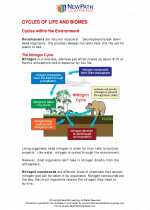 Cycles of life and Biomes
Cycles of life and Biomes  Worksheet/Answer key
Worksheet/Answer key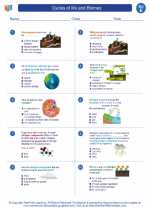 Cycles of life and Biomes
Cycles of life and Biomes  Worksheet/Answer key
Worksheet/Answer key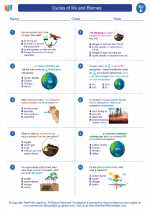 Cycles of life and Biomes
Cycles of life and Biomes  Worksheet/Answer key
Worksheet/Answer key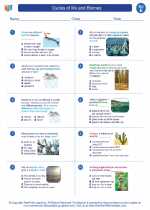 Cycles of life and Biomes
Cycles of life and Biomes  Worksheet/Answer key
Worksheet/Answer key Cycles of life and Biomes
Cycles of life and Biomes  Vocabulary/Answer key
Vocabulary/Answer key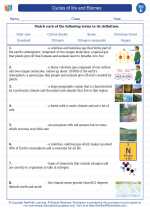 Cycles of life and Biomes
Cycles of life and Biomes  Vocabulary/Answer key
Vocabulary/Answer key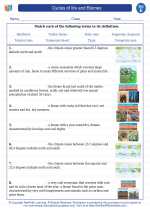 Cycles of life and Biomes
Cycles of life and Biomes 

 Worksheet/Answer key
Worksheet/Answer key
 Worksheet/Answer key
Worksheet/Answer key
 Worksheet/Answer key
Worksheet/Answer key
 Worksheet/Answer key
Worksheet/Answer key
 Vocabulary/Answer key
Vocabulary/Answer key
 Vocabulary/Answer key
Vocabulary/Answer key

The resources above cover the following skills:
LIFE SCIENCE (NGSS)
Ecosystems: Interactions, Energy, and Dynamics
Students who demonstrate understanding can:
Develop a model to describe the movement of matter among plants, animals, decomposers, and the environment.